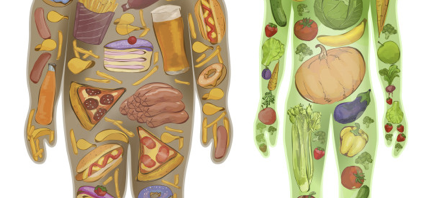Obesity is a very prevalent problem in the US. Over one third of Americans are obese. Obesity can lead to many health complications such as diabetes and heart diseases. The cause of obesity is very difficult to determine because it is a complicated problem. There are many components including genetics, lifestyle and neurological pathways. Many scientists are trying to research the biological pathways involved in obesity to try and find a drug target. One of these pathways involved in obesity is the endocannabinoid (eCB) system which has been found to play a role in regulating food intake.
At a balanced level, eCB help our bodies know when they are hungry and then find and consume food. Once we are full, hormones help override that system telling us we no longer need food. However, an imbalance in this system can contribute to obesity because the hunger instinct does not get shut off. This constant feedback loop signaling hunger along with a reward response associated when we eat food is seen in obese patients. So, is obesity our fault, or something we cannot help?
Unfortunately, it is hard to answer that question because many factors work together to contribute to obesity. By not exercising regularly and eating heathy foods, we only reinforce this feedback loop. If we simply take away or block the eCB system, we would still be left with the genetic and lifestyle components.
Lifestyle seems to be have a big impact on overall health. Because it is such a problem here in the United States it is important to consider culture and lifestyle as a cause of obesity. With fast food made so cheap and available, it is often the go-to choice for dinner after a busy day. These foods are often high in fat and are more processed than fresh produce.
Because these foods are cheap, what we eat often depends upon our socioeconomic status. Fresh food is more expensive and spoils faster, so it is harder for people below the poverty line to afford them. While government programs such as Women, Infants and Children (WIC), try to include fresh foods, it is not sufficient to set a lifelong habit. We need to look at investing in education about nutrition as well as healthy lifestyle.
Childhood obesity has more than tripled in the last 40 years. Why is this the case? There is a disconnect between what is taught in the health classrooms and our daily lives. Adults set the example for children, so what they eat and how the spend their time gets passed down to their kids. Ideally, we should strive for home cooked meals made with fresh ingredients and try to be active for 30-60 minutes a day. This takes some effort but can be done by making small decisions each day to better ourselves in the future.




